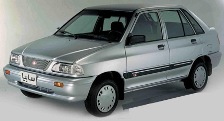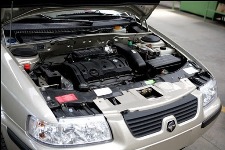"Despite warnings from the Obama administration that Latin America should not engage in relations with Iran, President Ahmadinejad held a successful four-country tour in the region forging commerce and trade and consolidating relations."
T/ COI P/ Presidential Press
Venezuelan President Hugo Chavez received his Iranian counterpart, Mahmoud Ahmadinejad, in Caracas last Monday for a meeting that yielded a series of new bilateral accords between the two allied countries in areas of industry, science, technology, and politics.
The visit formed part of Ahmadinejad's tour of Latin American countries where he met with Ecuadoran President Rafael Correa, Nicaraguan President Daniel Ortega, and Cuban head of state Raul Castro.
“We have a willingness to continue working together in order to put the brakes on the imperialist insanity that has been unleashed around the world with terrible, threatening power”, Chavez said as he received Ahmadinejad in the presidential palace of Miraflores on Monday.
The accords signed between the two countries focused mainly on knowledge transfer and research initiatives in nanoscience and technological development.
Memorandums of understanding were also signed, laying the groundwork for new areas of cooperation as the two heads of state reviewed earlier industrial and agricultural projects.
Sovereignty Ties
During their encounter, both Chavez and Ahmadinejad defended their right to maintain their mutually beneficial relationship despite US threats of consequences for those countries that carry out commercial activity with Iran's central bank.
Chavez, calling the Obama administration's stance on Iran “ridiculous” lashed out against the US which accuses the Middle Eastern country of bellicose intentions and cites Venezuela as a destabilizing force in the Western Hemisphere.
“We are not war-like people. Iran has not invaded anyone and neither has the [Venezuelan] Bolivarian Revolution. We haven't dropped bombs on anyone. Who has launched missiles and thousands of bombs, including atomic ones, on unarmed people? ... It's not us. We are part of the people who have been attacked and continue to be attacked while they attempt to portray us as aggressors”, Chavez said.
For his part, the Iranian president condemned the hostile stance that the US has taken against his country as well as the continued threats emanating from Washington.
“We are two counties who are against the greed of the arrogant and the preponderant. We are resisting and we defend our rights”, Ahmadinejad said.
Caracas and Teheran have maintained diplomatic and commercial relations since the 1930s, mostly focused on energy related interests.Both nations are founding members of the Organization of Petroleum Exporting Countries (OPEC) and have maintained close energy ties for over fifty years.
Commerce & Agriculture
Since 2005, Ahmadinejad has visited the South American na- Venezuela several times in what has been a growing trade relationship. Venezuela, looking to diversify its commercial activities with countries less beholden to US interests, has received a good deal of benefits from the bilateral relationship, especially in the areas of housing and agriculture.
Recently, pacts signed between Venezuela and Iran have resulted in the construction of more than 14,000 homes in the South American nation and the development of 26 agro-industrial food processing plants.
Iranian tractors made with Venezuelan raw materials have also become a common sight in the South American nation’s countryside and the Ahmadinejad government has assisted the country in fostering its own vehicular industry. Automobiles are another area where Venezuela and Iran have invested heavily, creating the joint venture Venirauto in 2007. Currently, the car factory produces several thousand new and affordable vehicles annually sold under the name “Turpial”.
|
|
|
| The Veniran farm tractors manufactured in Venezuela from Venezuelan raw materials with Venezuelan labor. |
|
|
|
The Turpial, manufactured in Venezuela with Iranian technology. |
“We have this great expectation that Iran and its government as well as its institutions are going to continue to work in the public interest. We're going to continue counting on the support of Iran for our own development”, Chavez said on Monday.
Source: Correo del Orinoco (English)

